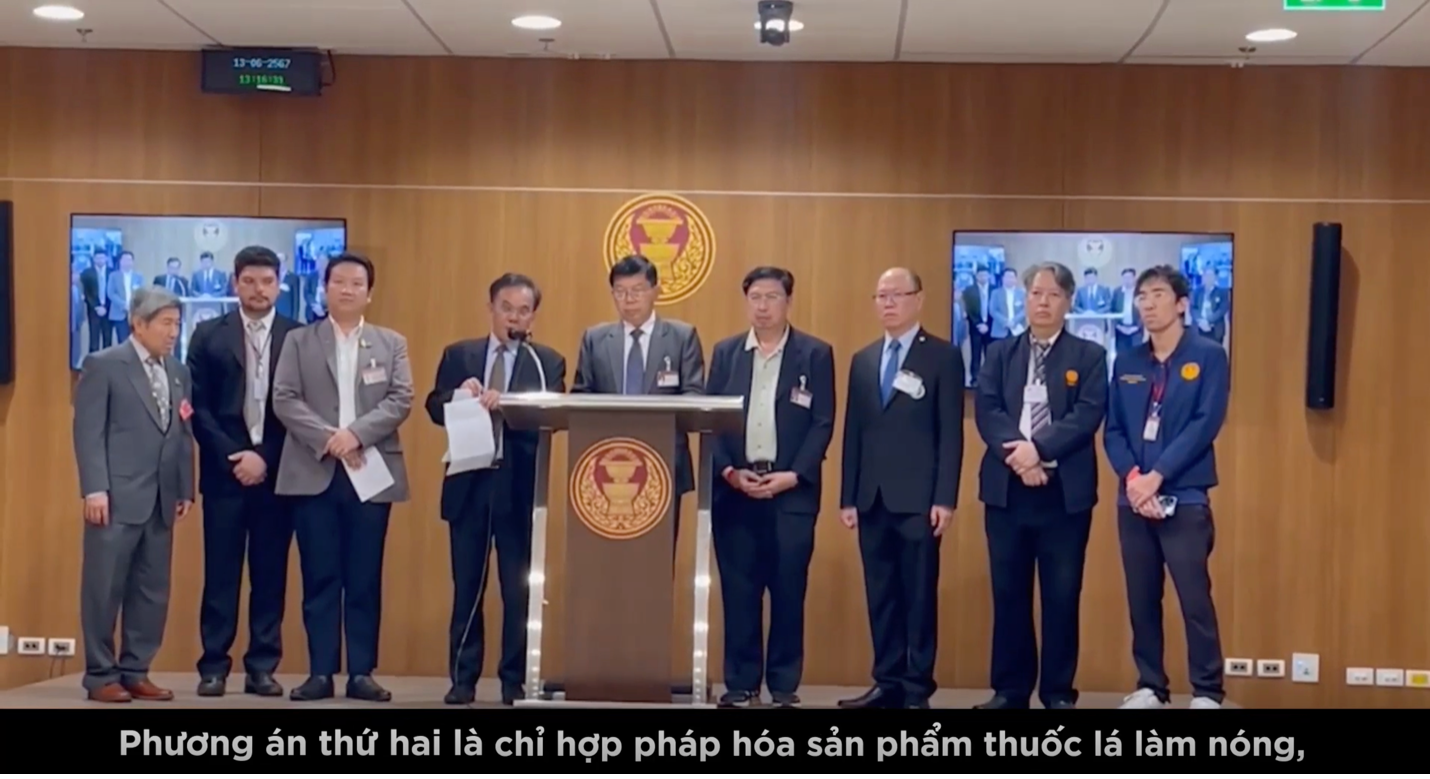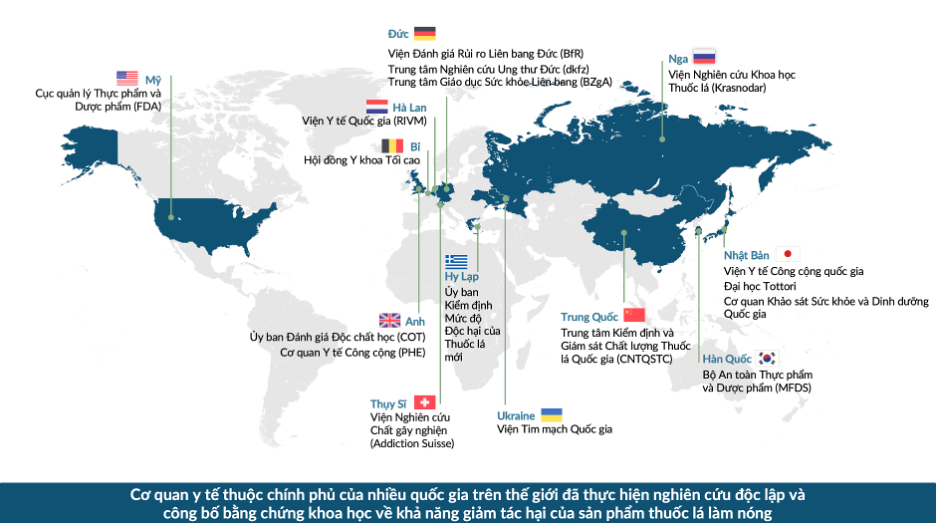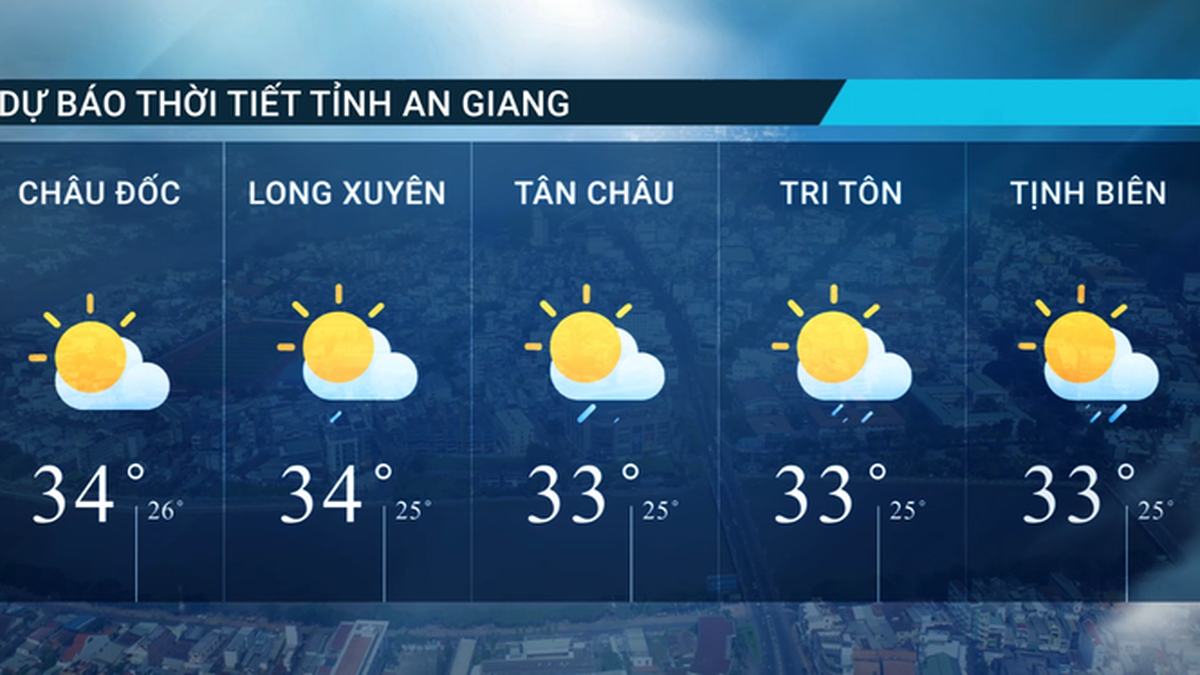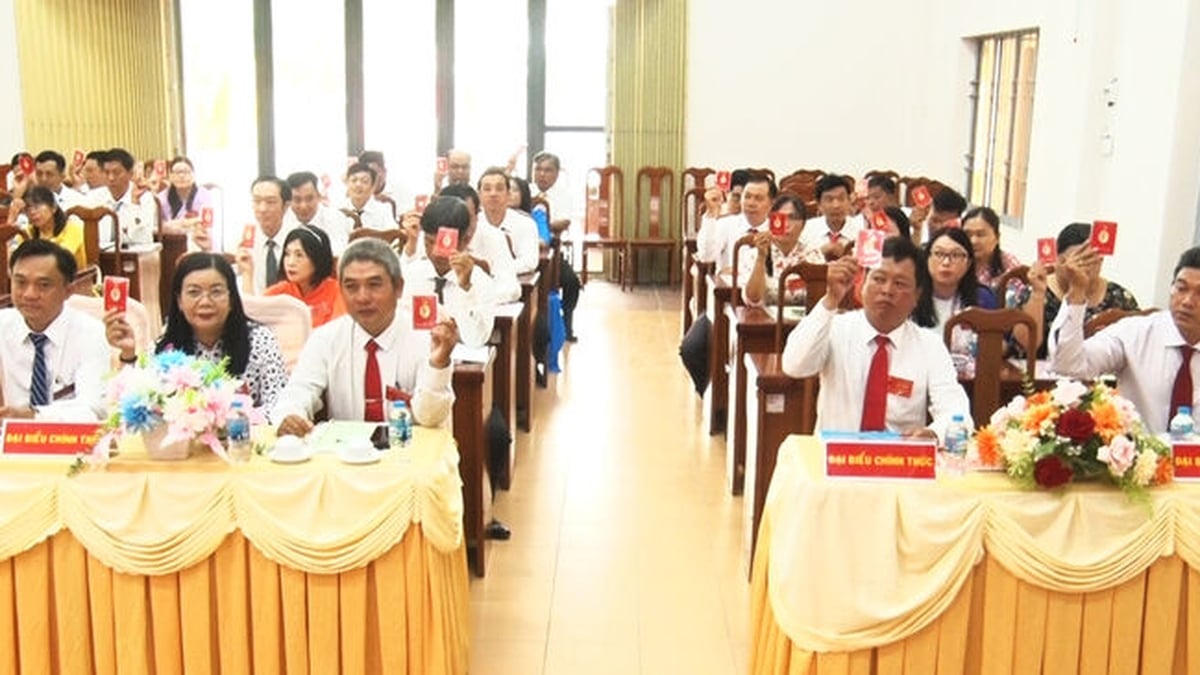To date, these countries are still facing many economic, social, political problems, and opposition from both users and experts. At the same time, these countries are constantly changing their policies to better suit reality, even having the ability to lift the ban to switch to management.
Efforts but not yet rewarded
It is no coincidence that the prestigious medical journal The Lancet called on WHO to emphasize the importance of tobacco harm reduction within the framework of the Framework Convention on Tobacco Control (FCTC).

The Special Committee of the Thai Parliament proposes three new tobacco management options. Source: Thai Parliament .
In fact, the WHO’s recommendation to ban new tobacco products has received little support so far, with only 5% of countries (an estimated 11) adopting such a ban.
Therefore, two former WHO officials, Professor Robert Beaglehole and Professor Ruth Bonita, authors of a study published in The Lancet, called on WHO to take a more active leadership role in supporting countries as they consider policies on new tobacco products such as TLNN, TLĐT, snus, etc. The authors explained that in practice, bans only escalate tensions and pressure on governments on many issues.
Specifically, Thai officials in recent years have acknowledged that the ban, although strict and somewhat extreme, has not been able to curb the growth of e-cigarette use in the country. Practical data shows that the rate of smuggling and violations of e-cigarette use regulations among young people is increasing, despite the ban and criminal penalties such as arresting e-cigarette users as "criminals" in this country.

Government health agencies in many countries have conducted independent research and published scientific evidence on the harm reduction potential of heated tobacco products.
Therefore, in September 2023, the Thai Parliament established a Special Committee to obtain results for adjusting the new tobacco control policy. Two of the three options proposed by this Committee are strict management instead of prohibition. It is expected that in the near future, the Thai government will have a historic turning point for smokers here with the new policy.
In Australia, despite tightening controls on e-cigarettes like prescription drugs, the government is struggling to cope with the rise in e-cigarette use in schools, while also losing tax revenue to the country. According to the most recent report from the state of South Australia, the number of 15-19 year olds who regularly use e-cigarettes in 2023 doubled compared to 2022, reaching 15.1%. Of the 1.7 million e-cigarette users in Australia, 90% are using illegal goods. From an economic perspective, the Australian Taxation Office estimates that the tax revenue lost in 2021-2022 will be around $2.3 billion.
Therefore, Australia has recently made another move to "de-escalate" when adjusting the policy: From October 2024, e-commerce users can buy products directly from pharmacies without a doctor's prescription.
Burdens to consider if new tobacco bans are introduced
Banning or legalizing TLLN and new cigarettes is currently a matter of discussion among ministries and agencies. According to delegates, this issue needs to be agreed soon to fill the legal gap for these products in the past 10 years.
Among them, there are opinions that it is necessary to protect public health, so banning these items is necessary. However, according to experts and National Assembly deputies, tobacco is a conditional business, so if banning these items, it is necessary to consider the legal consequences. In particular, Vietnam is a latecomer, so it can update and refer to experiences and real-life data from previous countries, from countries that still apply bans such as Thailand, Cambodia, Laos, to countries that apply management measures such as Japan, the US, Malaysia, and even countries that have reversed the ban to management such as: Uruguay, Taiwan, New Zealand, etc.
In particular, experts and delegates also suggested that internal factors of domestic management need to be comprehensively assessed.
Vietnam has now affirmed its position as an attractive destination for investors in the ASEAN region thanks to its remarkable improvements in the business environment. This achievement is even more prominent when compared to countries that have legalized TLLN and new tobacco since 2018 such as Malaysia. The fact that it is increasingly approaching developed countries in the region shows that Vietnam has great potential in consulting and applying effective policies to promote sustainable development.
In terms of both economy and law, Vietnam is not inferior to other developed ASEAN countries such as Malaysia, Indonesia, Philippines... In particular, the stable legal system is a strength that helps Vietnam's adaptability to technological innovations, such as technology cars or new cigarettes.
The Law on Prevention and Control of Tobacco Harms (2012), the Investment Law, together with international commitments that Vietnam is participating in, have created a comprehensive and updated legal framework for this industry. This helps Vietnam effectively manage products that have been identified as tobacco by WHO and other international organizations, such as TLLN.
Therefore, building policies based on scientific evidence, real-life data and applying the principle of the majority of countries that have successfully managed TLLN will help Vietnam avoid the prejudice of "if you can't manage it, then ban it", or belonging to a group of isolated countries in some specific industries such as tobacco.
Source: https://www.baogiaothong.vn/neu-cam-thuoc-la-nung-nong-viet-nam-se-thuoc-nhom-cac-quoc-gia-ca-biet-19224092415450945.htm



































































































Comment (0)